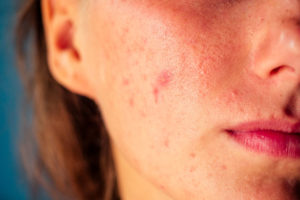Do facial extractions hurt or damage the skin?

Most ladies will feel that their facial spa is incomplete without an extraction. What is facial extraction? An extraction is the manual means of clearing a pore that has become clogged with impurities, excess sebum (oil produced by glands in your skin), and dead skin cells. Improper face cleansing techniques also cause clogged pores. Extraction is usually performed using fingers or a unique metal extraction tool designed for this purpose. Extractions can be painful and lengthy.
Does extraction damage the skin?
Most Facial Therapists will ensure that extraction will not harm or damage your skin when done correctly. What they did not tell you is that if extraction is done incorrectly, it can damage your skin irreparably, leaving behind permanent scars and even broken blood vessels! There are downsides to extractions that may leave your skin less aesthetically presentable.
 1. Extraction is usually painful
1. Extraction is usually painful
Don’t listen to what your facial therapist says about No Pain, No Gain! Pain is a warning sign that something is wrong, and a high level of pain indicates that the skin is being damaged excessively. Most Beauty Salons will use a soothing cooling cream or lotion to minimize the pain before extraction.
2. Redness and Irritation
Redness and irritation after extraction is yet another clear signal that your skin has been damaged excessively. Soothing, cooling cream is used to calm the skin and minimize redness and irritation.
 3. Breakouts
3. Breakouts
Post-facial breakouts and inflammation may occur due to bacteria that make their way into the skin during and after extractions when the pores are open. Steps have to be taken to close the pores and anti-bacterial or antiseptic cream is used to prevent outbreak.
4. Scarring
When using fingers or tools to extract impurities from your pores, you risk damaging the outer layer of your skin. Overly vigorous extractions can cause cuts and bleeding and result in permanent scarring. Although a skillful therapist can minimize all these, why not take steps and care to prevent the need for extractions. Prevention is always better than cure.
